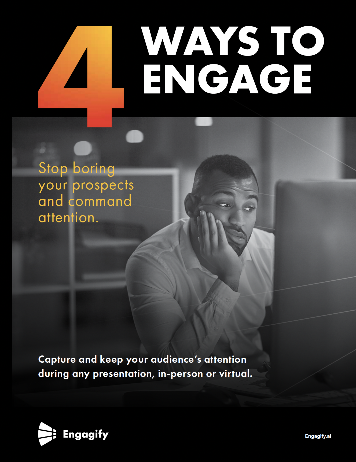Figuring out whether you and your team should attend a trade show can be tricky. Getting out of the office sounds like a no-brainer, but when you start thinking about taking time “off,” traveling, paying for the conference itself, and what you’ll actually do once you get there, the answer starts to feel a little less clear. So, how can you figure out whether that next trade show is worth attending?
While your decision will ultimately depend on what your team does, what your goals are, and how much budget you have available, below are some questions you can ask yourself to figure out whether you should be packing your suitcase for the event.
1. Will the event help you generate quality leads to drive sales?
While it’s your responsibility to drive foot traffic to your booth during the show, it’s the organizer’s job to bring the right quality and quantity of visitors to the aisles. Here are a few good questions to ask yourself about the event’s expected attendees and traffic:
- How many people are expected? (How many are attendees versus exhibitors?)
- How many of those people are actually your target audience?
- Where are they coming from? Are they part of your distribution territory?
- Why are people joining? What are they looking for?
- What have they been promised by the organizer?
- What is the percentage of buyers and decision-makers vs. visitors?
These questions are all about one thing: even if the event drives a million people, if they aren’t your target customers, it won’t be worth it.
Talk to previous exhibitors and get the real scoop on the show in question.
2. Can you prove the value of the trade show to upper management?
Proving a conference’s value to management can be a challenge, especially if your company is on a tight budget. And while you can’t really calculate ROI until after you’ve spent the time and money to attend, here are two things you could use to uncover the conference’s potential impact:
- Opportunity Cost: If you don’t send your team, what would you be missing out on? What knowledge or skill set would you not be developing to grow at your job and ultimately help the company? What connections would you miss out on?
- Competitors: Are they attending the event? How is their marketing grade compared to yours? Did they attend this conference last year and get a lot of engagement from it? If your competition continue to go year after year it will most likely be a good show for your company too!
Knowing this information can help understand the potential ROI – if your competitors had success last time, it means that there’s a market of people at the event who could be a good fit for your company, too.
3. Will the trade show help you and your team grow professionally?
The right conferences not only helps you to meet smart, inspiring people, but they also are a great way to learn – especially skills that make you a more well-rounded professional. So when you’re evaluating a conference, think about whether the people from your team can attend and actually develop new skills. This will happen even more naturally if you’re attending the conference with other people from your organization that are on different teams – the conference can help you make better internal connections and better understand your team’s world.
4. Will you be easily able to connect with other attendees on social media?
Engaging on social media with other event attendees is often just as valuable as actually attending the conference. Many conferences will have a dedicated hashtag, a Twitter account for the event, a place to take pictures, live video streaming, a Facebook Event page, and more, giving you lots of opportunities to meet and connect with other people at the conference.
If a conference doesn’t make this easy for you, you might need to get creative to find new, interesting people to meet – and those efforts could be time-consuming and/or expensive. Look for a trade show that has their social media game down, and it will make networking afterward that much easier.
5. Can you blog about the trade show afterward?
As an inbound marketer, you’re always trying to figure out what piece of content to create next. When you’re evaluating a trade show, take a second to consider whether you could create any content from the conference that your readers would want to read about. Could you recap one of the panel discussions or find time to interview one of the speakers for your next blog post?
If the answer is “yes,” this event could be of great value to you. Blogging about your experiences will give you a chance to better engage with your fellow attendees and get traffic to your site. And if you get the conference coordinators to notice your blog, you might even use that post as proof that you should be considered for the following year’s speaking roster.
These are great preliminary questions to ask yourself before the next big trade show, but when it gets down to it, the main thing to consider is whether or not you and your team will get any value from it.




